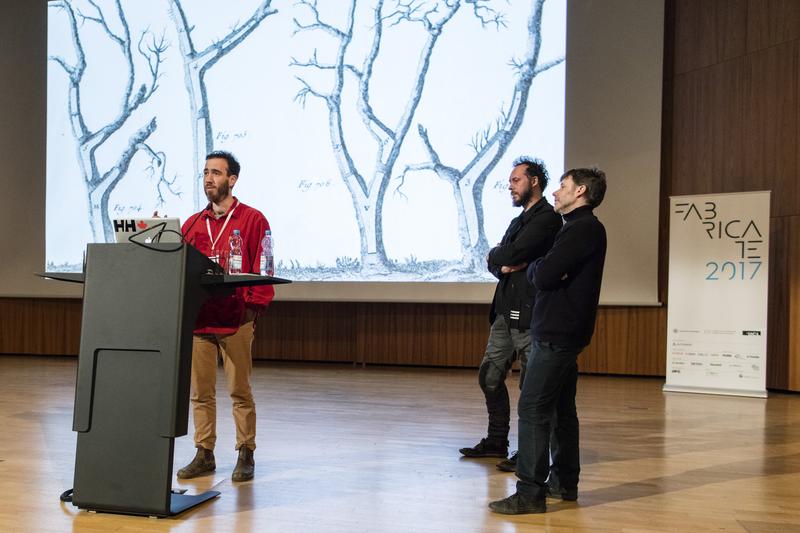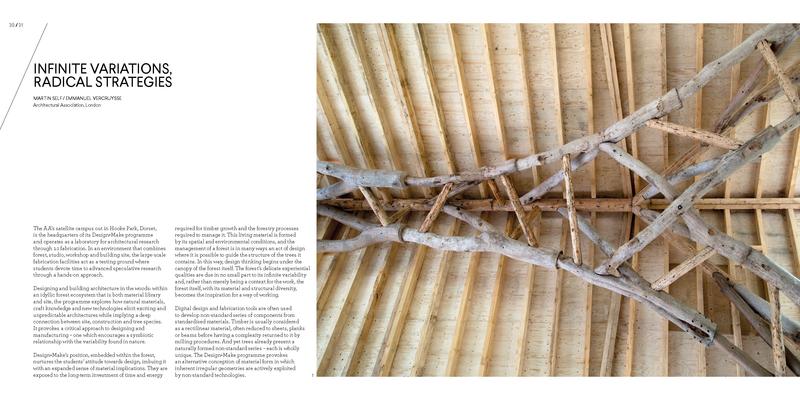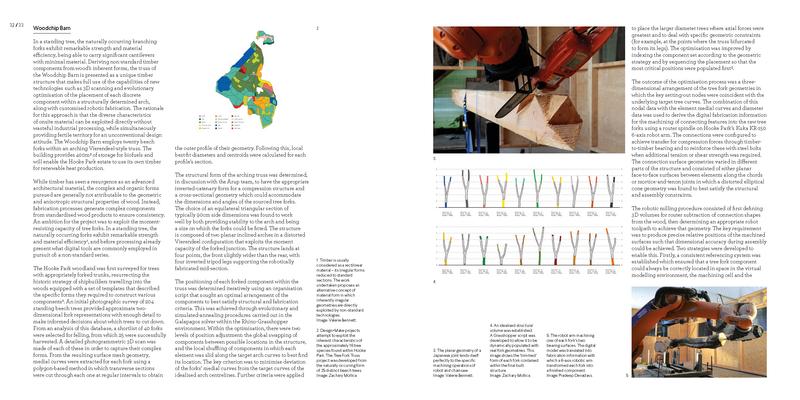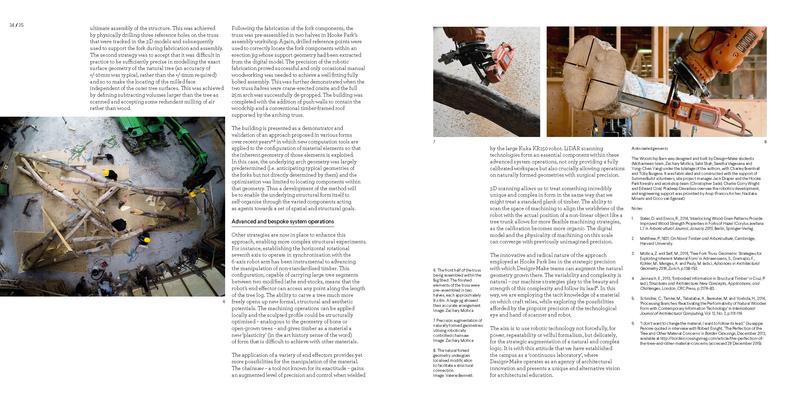Fabricate Conference

2017
Presentation and contribution to publication of ‘Infinite Variations; Radical Strategies’ with Design + Make programmme directors.



The AA’s satellite campus out in Hooke Park, Dorset is the headquarters of the Design + Make Program and operates as a laboratory for Architectural Research through 1:1 fabrication. In an environment that combines, forest, studio, workshop and building site, the large scale fabrication facilities act as a testing ground where students devote time to advanced speculative research through a hands-on approach. Designing and building architecture in the woods: within an idyllic forest ecosystem that is both material library and site, the program explores how natural materials, craft knowledge and new technologies elicit exciting and unpredictable architectures whilst implying a deep connection between site, species of trees and construct. It provokes a critical approach to designing and manufacturing – one which encourages a symbiotic relationship with the variability found in nature.
Design + Make’s position, embedded within the forest, nurtures the students’ attitude towards design, imbuing it with an expanded sense of material implications. They are exposed to the long-term investment of time and energy required for timber growth and the forestry processes required to manage it. This living material is formed by its spatial and environmental conditions and the management of a forest is in many ways an act of design, where it is possible to guide the structure of the trees it contains. In this way design thinking begins under the canopy of the forest itself. The forest’s delicate experiential qualities are due in no small part to its infinite variability, and rather than merely a context for the work, the forest itself with its material and structural diversity becomes the inspiration for a way of working.
Digital design and fabrication tools are often used to develop nonstandard series of components from standardized materials. Timber is usually considered as a rectilinear material, often reduced to sheets, planks or beams before having a complexity returned to it by milling procedures. And yet, trees already present a naturally formed nonstandard series – each wholly unique. The D+M program provokes an alternative conception of material form in which inherent irregular geometries are actively exploited by non-standard technologies.
The paper’s full text can be found in the conference’s publication.
Bringing together pioneers in design and making within architecture, construction, engineering, manufacturing, materials technology and computation, Fabricate is a triennial international conference hosted by UCL and ICD Stuttgart.
Collaborators
Martin Self
Emmanuel Vercruysse
Category
Conference
Lecture
Writing